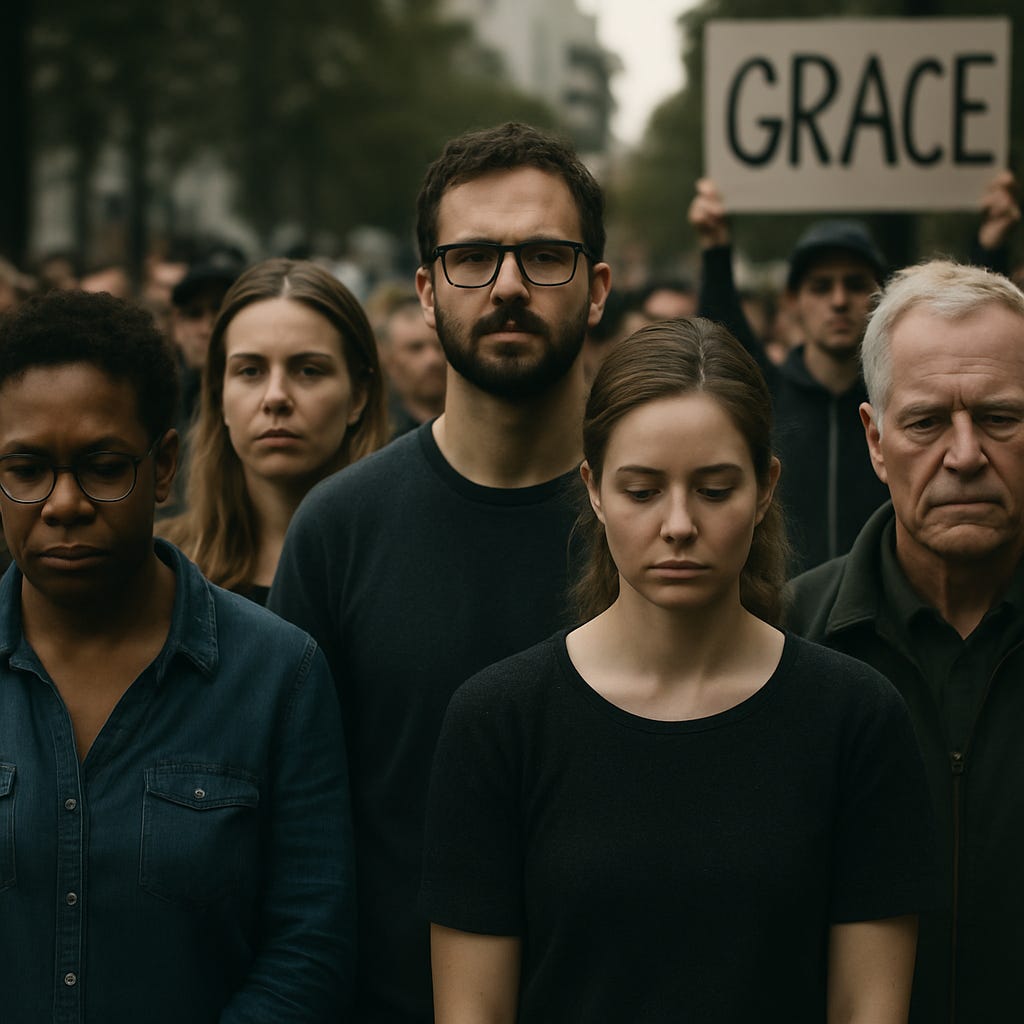In Defense of Goodness: A Letter to the Weary, the Watching, and the Willing
Grace as Resistance in an Age of Contempt
On What Is Still Worth Believing
John Pavlovitz wrote something recently that resonated with me (“What to Tell Your Children When Bad People Prosper”) —not because it was easy to absorb, but because it was hard not to weep through. His words—“Tell them you still believe that goodness is the best path…”—felt like they were written from inside the very ache so many good and honorable people feel, that many of us have been carrying. The ache of watching the world get darker and wondering if lighting one more candle matters.
Patti Frey—in response to my comment in Johns post—said something to me I will never forget. She told me I was like a “non-disciple, disciple of Jesus.” And whether she knew it or not, she handed me something very nearly sacred. Not a label—but a charge.
Elene Gusch added her voice too—lifting mine, reminding me that there’s something in this struggle that still deserves to be said out loud, written down, and passed on.
So, let me try to say it.
I’m not a man of faith—not in the formal sense. I don't wear a cross. I don’t belong to a fold. I don’t believe in God. What I know is I have faith in people…good people. And I can identify good people through the experience I’ve acquired through four decades in the military and the federal government. I’ve seen both the best and the worst of humanity up close. I’ve seen order weaponized and cruelty made policy. I’ve watched powerful men smile while doing quiet violence to the truth.
And yet.
And yet I believe in the enduring presence of grace.
I believe in goodness, not as a strategy, but as a way of life.
Not as currency, but as character.
The Failure of Platitudes and the Weight of Truth
We were all raised on stories: Cheaters never prosper. Love wins. Be kind and the world will return it to you.
And then we grew up.
We learned that cheaters become CEOs. That cruelty books speaking tours. That the truly ruthless get their own cable segments and security details. We learned that decency doesn’t scale in a rigged economy—or in rigged politics.
But we also learned something more important.
That goodness isn’t a transaction. It’s a declaration.
Doing the right thing doesn’t mean you’ll be spared the fire—but it does mean you won’t become the flame that burns others. That matters. Even now—especially now.
Because this isn’t just about hard truths. It’s about refusing to give up on better ones.
Grace Is Not a Luxury
In this moment of political cruelty—this bleak parade of punitive laws, cynical sermons, and rotted-out slogans—we have to recover something older than slogans.
Call it grace. Call it decency. Call it soul.
It’s the thing that reminds us we are not merely what we fear. That the child who still believes in kindness was not naïve—but brave.
And let’s be honest: the ones in power today, the ones banning books and censoring speech and mocking the vulnerable—they’re not just trying to pass laws. They’re trying to unmake our moral memory.
They want us exhausted, cynical, transactional.
They want grace to look quaint.
They want goodness to sound like weakness.
So, we answer not by arguing with their cruelty but by refusing to adopt it.
We remain human, even when they do not.
We remain kind, even when they mock it.
We remain fierce—not with hatred, but with heart.
A Promise in the Smoke
Let this be our promise to one another:
That when decency is branded weakness, we will remember it is strength.
That when compassion is mocked by power, we will defend it with our voices and our votes.
That when justice is drowned out by propaganda, we will raise its name like a banner.
That when the powerful trample truth and call it order, we will stand shoulder to shoulder and say, Not in our name.
Because in this moment, when fear is policy and cruelty is strategy, grace is not just a gift.
It is resistance.
It is defiance.
It is the quiet, burning call to be fully human—together.
And I believe that call still matters.
I believe it still finds its way through the smoke.
I believe, despite everything, that we are not alone.
Not if we choose not to be.
Further Reading:




Thank you for the uplifting words🙏🏽😌❤️